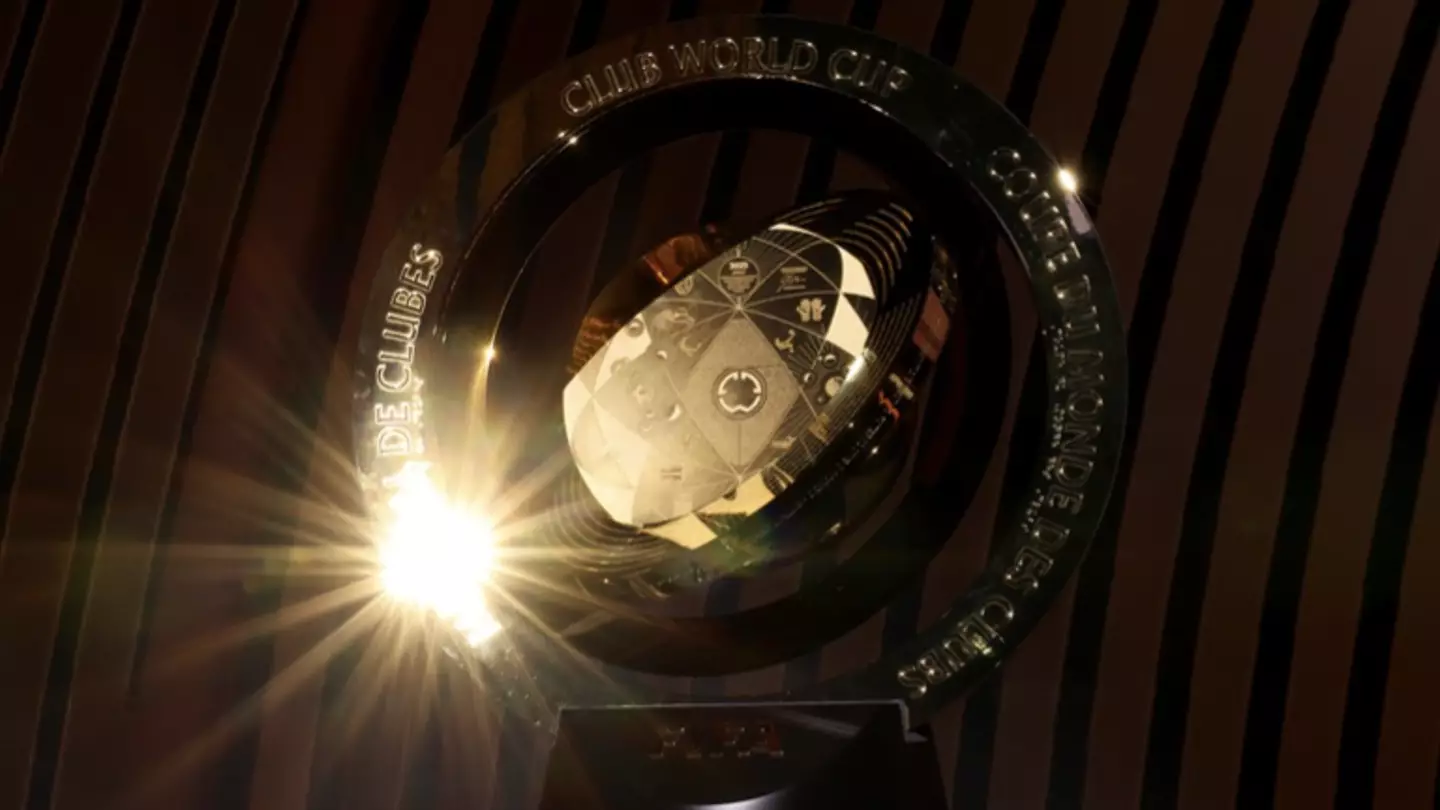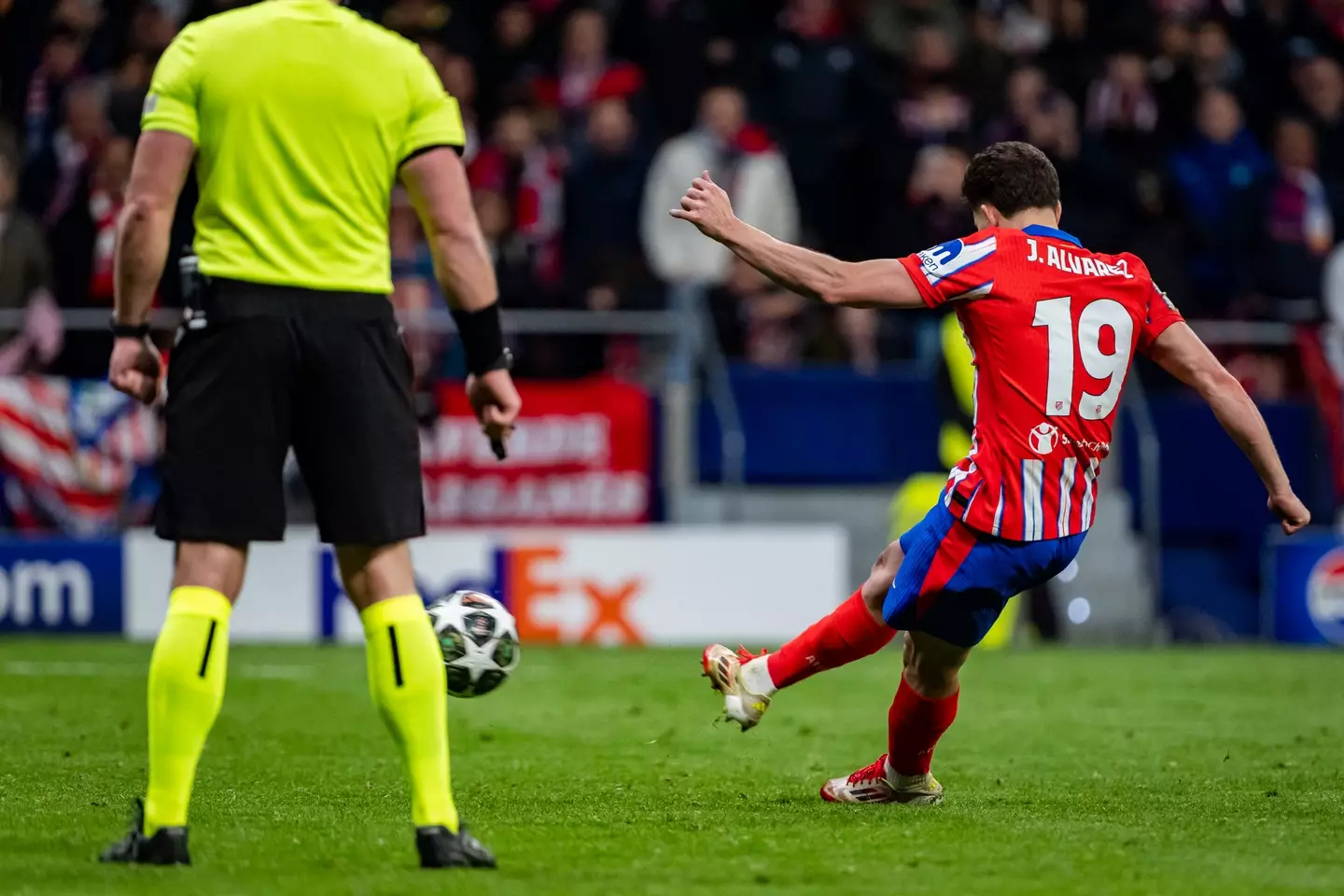
The Club World Cup could feature a new football rule after the International Football Association Board (IFAB) made an announcement on Tuesday following a controversial incident in last season's Champions League.
Back in March, Julian Alvarez had his penalty disallowed as Atletico Madrid lost to Real Madrid on penalties in a much-talked about Champions League last-16 clash.
After beating Thibaut Courtois with his spot-kick, the successful conversion initially stood but after a lengthy wait, the strike was disallowed by VAR, with the Argentinian being deemed to have illegally kicked the ball with both feet.
Several angles emerged after the final whistle which appeared to show Alvarez had indeed kicked it with both feet, though fans argued for both conclusions.
Advert
UEFA soon confirmed that only the VAR officials determined whether the former Manchester City forward had kicked the ball twice, with no other sensors or technology used for assistance.
Now, the incident has prompted the IFAB to change the laws regarding a player kicking the ball twice during a penalty. In short, if a penalty taker accidentally makes contact with the ball with both feet, and the kick is successful, it must now be retaken.
Law 14 now states: "The penalty taker inadvertently hits the ball with both feet simultaneously or the ball touches his supporting foot or leg just after taking the kick: If the ball enters the goal, it will be repeated.
"If the ball does not enter the goal, an indirect free kick will be awarded (unless the referee grants an advantage when the action clearly benefits the defending team) or, in the case of penalty shoot-outs, the shot will be recorded as missed."
If a player voluntarily kicks with both feet, the alternative rule states: "An indirect free kick will be awarded (unless the referee grants an advantage when the action clearly benefits the defending team) or, in the case of penalty shoot-outs, the shot will be recorded as missed."
This new rule will apply to competitions starting on or after July 1, 2025, although it can be used in competitions starting earlier, such as the Club World Cup, according to Spanish publication Marca.

The statement from the International Football Association Board (IFAB) in full:
The IFAB wishes to clarify Law 10 – Determining the Outcome of a Match and Law 14 – The Penalty Kick regarding the situation when the penalty taker accidentally kicks the ball with both feet simultaneously or when the ball touches the penalty taker’s non-kicking foot or leg immediately after they have taken the kick.
This situation is rare, and as it is not directly covered in Law 14, referees have understandably tended to penalise the kicker for having touched the ball again before it has touched another player, thus awarding an indirect free kick to the opposition or, in the case of penalties (penalty shoot-out), recording the kick as missed.
However, this part of Law 14 is primarily intended for situations where the penalty taker deliberately touches the ball a second time before it has touched another player (e.g. when it rebounds from the goalpost(s) or crossbar without touching the goalkeeper).
This is very different from the penalty taker accidentally kicking the ball with both feet simultaneously or touching the ball with their non-kicking foot or leg immediately after they have taken the kick, which usually occurs because they have slipped when taking it.
Not penalising an accidental double touch would nevertheless be unfair, as the goalkeeper can be disadvantaged by the altered trajectory of the ball.
Therefore, The IFAB would like to clarify the procedures in the following situations.
- The penalty taker accidentally kicks the ball with both feet simultaneously or the ball touches
their non-kicking foot or leg immediately after the kick:
- If the kick is successful, it is retaken
- If the kick is unsuccessful, an indirect free kick is awarded (unless the referee plays
advantage when it clearly benefits the defending team) or, in the case of penalties (penalty
shoot-out), the kick is recorded as missed
- The penalty taker deliberately kicks the ball with both feet simultaneously or deliberately
touches it a second time before it has touched another player:
- An indirect free kick is awarded (unless the referee plays advantage when it clearly benefits the defending team) or, in the case of penalties (penalty shoot-out), the kick is recorded as missed.
Please note that these clarified procedures are effective for competitions starting on or after 1 July 2025 and may be used by competitions starting before that date.
Topics: FIFA Club World Cup, Champions League